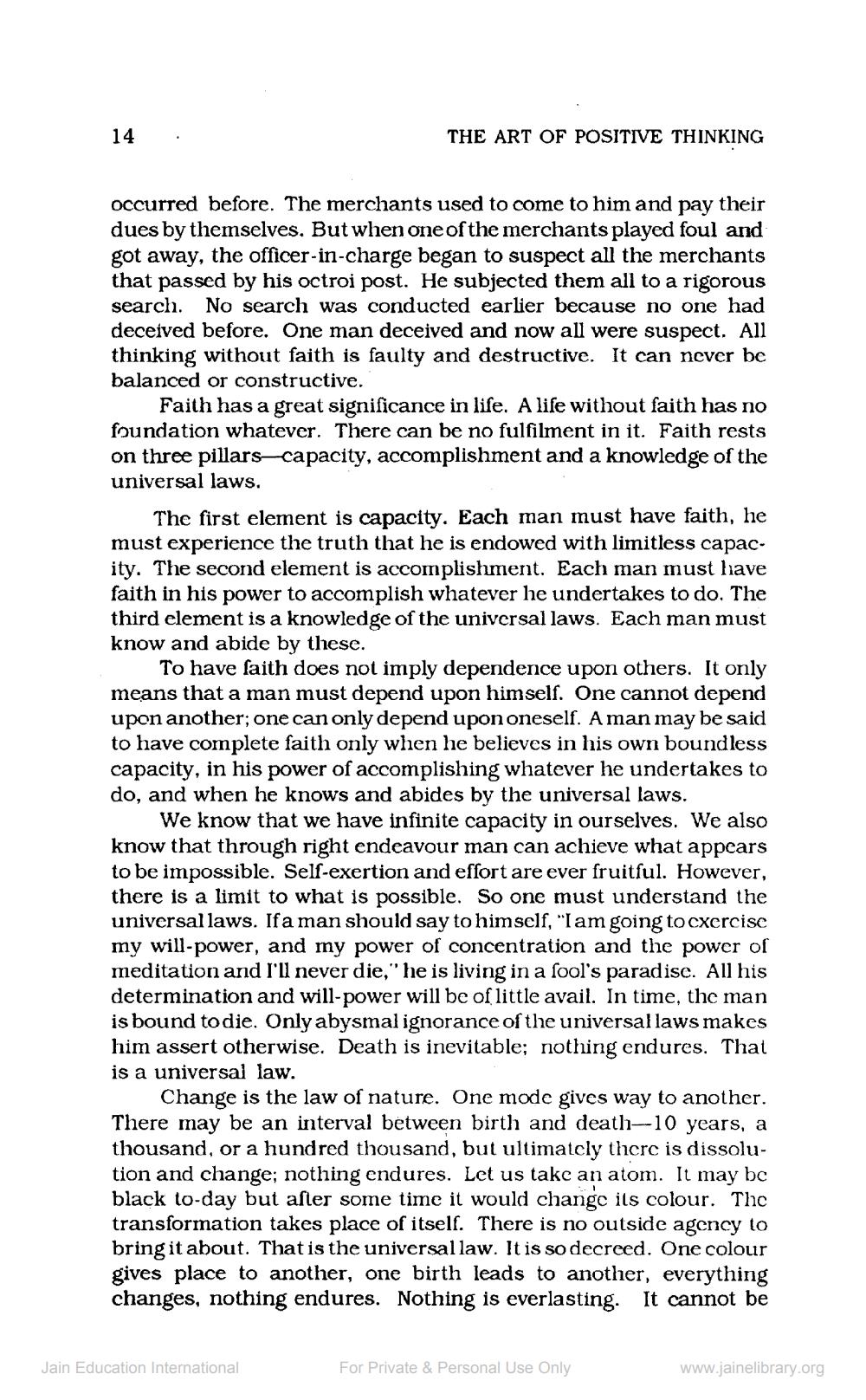________________
14
:
THE ART OF POSITIVE THINKING
occurred before. The merchants used to come to him and pay their dues by themselves. But when one of the merchants played foul and got away, the officer-in-charge began to suspect all the merchants that passed by his octroi post. He subjected them all to a rigorous search. No search was conducted earlier because no one had deceived before. One man deceived and now all were suspect. All thinking without faith is faulty and destructive. It can never be balanced or constructive.
Faith has a great significance in life. A life without faith has no foundation whatever. There can be no fulfilment in it. Faith rests on three pillars-capacity, accomplishment and a knowledge of the universal laws.
The first element is capacity. Each man must have faith, he must experience the truth that he is endowed with limitless capac. ity. The second element is accomplishment. Each man must have faith in his power to accomplish whatever he undertakes to do. The third element is a knowledge of the universal laws. Each man must know and abide by these.
To have faith does not imply dependence upon others. It only means that a man must depend upon himself. One cannot depend upon another; one can only depend upon oneself. A man may be said to have complete faith only when he believes in his own boundless capacity, in his power of accomplishing whatever he underta do, and when he knows and abides by the universal laws.
We know that we have infinite capacity in ourselves. We also know that through right endeavour man can achieve what appears to be impossible. Self-exertion and effort are ever fruitful. However, there is a limit to what is possible. So one must understand the universal laws. If a man should say to himself, "Iam going to cxercise my will-power, and my power of concentration and the power of meditation and I'll never die," he is living in a fool's paradise. All his determination and will-power will be of little avail. In time, the man is bound to die. Only abysmal ignorance of the universal laws makes him assert otherwise. Death is inevitable; nothing endures. That is a universal law.
Change is the law of nature. One mode gives way to another. There may be an interval between birth and death-10 years, a thousand, or a hundred thousand, but ultimatcly there is dissolution and change; nothing endures. Let us take an atom. It may be black to-day but after some time it would change its colour. The transformation takes place of itself. There is no outside agency to bring it about. That is the universal law. It is so decreed. One colour gives place to another, one birth leads to another, everything changes, nothing endures. Nothing is everlasting. It cannot be
Jain Education International
For Private & Personal Use Only
www.jainelibrary.org




